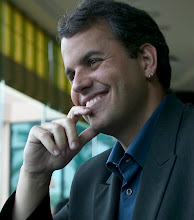And the combination of economic, foreign policy, and education issues jumped out at me and reminded me of one of my white papers. I went back and found the section that applied:
Certainly, outside experts and people of renown can bring attention and business to a country. Perhaps a single speech or several days of meetings can generate a few new ideas or inspire a local entrepreneur. Unfortunately, the time and costs required to physically transport senior advisors around the world ensure only a very small number of advisors will be asked to participate. This a priori determination of fitness is contrary to virtually everything understood about innovation, where broad approaches are needed. Worse, the nature of an advisory role only focuses brainpower on the nation-state's interests for very short periods of time around specific visits or events. This is reminiscent of the "Eureka!" myth that innovation resides in brief moments of brilliance rather than deep, engaging collaboration. But the real loss is that no matter how brilliant or valuable the strategic advisors are, there is the missed opportunity because the advisors rarely have time to work together. Rather than enabling a collection of great minds to collaborate, cross pollinate, and spend significant time on the problems facing a nation-state, advisory board meetings tend to be whirlwinds of speeches and posturing. It is only the rarest of events that are designed to build the kind oflasting connections so critical to collaboration and innovation.
We need approaches and technologies to help us be smarter, connect across distances, and share knowledge trapped in different networks while emitting less carbon and creating new opportunities. With Lively shutting down and Wonderland unlikely to survive Sun's massive layoffs, how will this affect Second Life during 2009?
Of course, this need goes way beyond Second Life, but that will have to wait for a later post.

